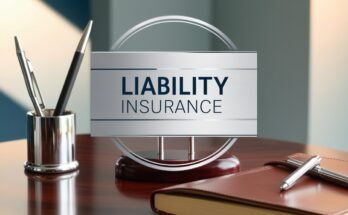“Abroad travel offers exciting adventures and cultural experiences, but failing to plan for medical emergencies can lead to costly disruptions. Learn how to prepare smartly for medical emergencies abroad and protect your journey.”
Understanding the Risk
Medical emergencies exist in every location including the Himalayas Himalayas during trekking activities and also on Thai beaches and throughout Roman streets. The main health complications abroad consist of food poisoning alongside infections along with fractures alongside allergic reactions up to severe situations like heart attacks or accidents. Medical care outside the United States is priced differently across nations which would force patients to cover expenses if they lack insurance or funds for preparation.
A few nations operate healthcare services at reasonable prices yet different nations demand high expenses for elementary hospital services. The hospital visit cost can reach hundreds or thousands of dollars in both United States and Japanese healthcare systems. The patient’s treatment becomes more difficult due to language differences as well as cultural dissimilarities.
Step 1: Get Comprehensive Travel Insurance
Travelers must start by buying suitable insurance coverage which specifically includes medical emergency protection. Here’s what to look for:
- Medical Coverage: Travel insurance should contain medical provisions that protect policyholders from minor and major health problems along with hospital stays and surgical procedures and necessary medications.
- Emergency Evacuation: Emergency Evacuation is essential because some regions lack appropriate medical facilities on site. The emergency evacuation benefit creates a mechanism for air ambulance services that transports you to the closest high-quality medical facility.
- Repatriation: The insurance policy includes repatriation benefits which provide coverage for getting transported home for additional medical treatment.
- Pre-existing Conditions: Existing health issues should be disclosed to determine policy eligibility.
- Adventure Sports Coverage: If you plan to engage in risky activities like skiing, diving, or hiking, check if the policy covers related injuries.
- COVID-19 and Pandemic Coverage: Review your policy to verify if adventure sport injuries such as skiing or diving or hiking accidents are included in the coverage.
You should verify that your policy includes COVID-19 and pandemic-related protection during times of uncertain travel. Verify several insurance providers while carefully examining all exclusions and limits within their policies. The policy comparison website Square mouth together with Insure My Trip assists travelers in their assessment process.
Step 2: Research Healthcare Options in Your Destination
The second step requires investigating medical facilities in your destination area. Prior to departure conduct a thorough investigation about the medical services operating in your destination country
- Public vs. Private Hospitals: Tourists usually encounter limited health care coverage within public hospitals which provide free access to local residents at reduced rates. Private hospitals deliver superior quality healthcare services although patients must pay increased costs for their care.
- Quality of Care: Tourists usually encounter limited health care coverage within public hospitals which provide free access to local residents at reduced rates. Private hospitals deliver superior quality healthcare services although patients must pay increased costs for their care.
- Language Barriers: Click on travel forum communities to learn about top healthcare facilities along with hospital quality standards, Click on travel forum communities to learn about top healthcare facilities along with hospital quality standards.
- Availability of Medication: Check the language proficiency of medical staff regarding your native tongue and English.
- Telemedicine Services: You should bring needed medications with you since you might not access specific drugs or acquire required prescriptions, the destination provides remote doctor consultations through telemedicine services to its visitors.
Always find the exact hospital or clinic near your accommodation before storing their contact information for future use.
Step 3: Carry a Medical Emergency Kit
The third step requires you to maintain a portable emergency medical essentials bag.
Travelers need a basic emergency medical package to deal with basic injuries without needing medical attention from doctors. Include:
- Pain relievers (Paracetamol, Ibuprofen)
- Bandages and antiseptic wipes
- Antidiarrheal and antacid medication
- Motion sickness tablets
- Prescribed medications with a copy of the prescription
- A digital thermometer
- Insect repellent and sunscreen
- Tweezers, safety pins, and scissors
- Electrolyte powders or hydration tablets
A first-aid kit with necessary products enables you to handle small issues instantly and at reasonable costs. Put your kit into a place for easy access and verify that all supplies have not expired before you pack them.
Step 4: Know How to Contact Emergency Services
Ensure You Memorize the Information Needed to Reach Emergency Medical Professionals
Enter emergency phone numbers of your local area into your phonebook.
- Ambulance and emergency services
- Nearest embassy or consulate
- Travel insurance emergency helpline
In some countries, the emergency number isn’t 911. For example:
- Europe: 112
- UK: 999
- Australia: 000
- Pakistan: 1122
- India: 102 or 108
- Japan: 119 for medical emergencies
Install map and emergency applications that work without internet access. In case when you need medical assistance Google Maps and offline directories listing hospitals save lives.
Step 5: Understand Payment Methods and Insurance Claims
Learn How to Make Payments and Handle Insurance Claim Procedures, Foreign hospitals require prompt payment upon treatment. Here’s how to handle it:
- Carry a Credit Card: You can pay for medical services through credit cards because most hospitals accept this form of payment.
- Cash for Emergencies: Pack small amounts of local cash to pay for modest short-term medical costs.
- Claim Process: To make medical insurance claims keep all purchase records documentation and your doctor’s medical information. Your health insurance needs this documentation to advance your claim.
- Direct Billing: Insurance programs with select hospitals provide direct payment services for quicker service. Check your provider’s network.
- Online Claim Filing: Your insurance provider has a digital platform for quicker claim processing. Get camera shots or digital copies of your documents clearly without any issues.
Step 6: Stay Healthy to Avoid Emergencies
Taking proper care of yourself will decrease your chances of needing emergency help.
Prevention is better than cure. Try these steps to decrease your possibility of needing emergency medical care.
- Vaccinations: Review the vaccines necessary to visit your destination. Get recommended booster shots including the Hepatitis A/B and Tetanus vaccines plus Typhoid defense.
- Food and Water Safety: Dine at acknowledged dining spots and drink from sealed or filtered water supplies. Keeps raw meat cooking processes hot to avoid illness and wash unpeeled fresh fruits before eating.
- Personal Hygiene: Regularly clean your hands with soap or sanitize with hand gel as a basic health precaution. Address all cuts or injuries as soon as possible.
- Avoid Overexertion: Understand your physical strength before pushing your limits in mountain or heat zones.
- Safe Transport: Use seatbelts, helmets, and licensed transportation. Stay away from nighttime travel across unsafe routes.
- Travel with a Buddy: Make travel plans with someone else since traveling to remote areas alone increases your safety risks. Having someone accompany you during emergencies makes them easier to handle.
Step 7: Know Your Legal Rights and Local Laws
The steps for handling major problems and medical emergencies differ depending on your situation.
- Medical Liability Laws: Your right to file medical malpractice lawsuits differs from country to country and affects your claim options.
- Embassy Assistance: The embassy of your country can help connect you with their doctor referral program plus provide family and severe financial help.
- Translation Services: When you visit the embassy they provide translators who work with legal or medical situations.
- Know Your Rights: Study the patient rights system that applies to your visit in each foreign country. Some areas impose rules that control your right to obtain a second opinion and avoid specific medical treatment options.
Bonus Tip: Keep a Medical Info Card
Carry a card that lists:
- Your full name and nationality
- Emergency contacts
- Blood type
- Allergies
- Current medications
- Any chronic conditions (like diabetes or asthma)
- Insurance details and policy number
Having such a card at hand can help first responders treat you faster during critical times when you cannot communicate effectively.
Officially Visit:
https://www.gov.uk/uk-border-control/at-border-control
Conclusion Medical
You do not need to face expensive medical costs during a foreign emergency. You can travel safely through preparedness that includes selecting the proper insurance coverage plus bringing essential medical supplies and knowing what medical support is available. Despite illness or injuries happening unexpectedly you can still prevent them from disrupting your activities and draining your budget.
Follow smart packing methods along with thorough research while maintaining awareness to handle any surprise situations during your journey. You must prioritize your health because it remains your most important travel companion throughout the trip.
Safe travels!
One can visit officially:
https://bestusacoverage.com/pet-insurance-best-insurance-in-spain/



